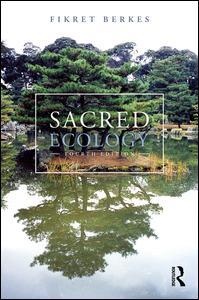Description
Sacred Ecology (4th Ed.)
Author: Berkes Fikret
Language: English
Keywords
Tamil Nadu; Reindeer Lichen; Young Man; Fuzzy Cognitive Maps; Sacred Natural Sites; Knowledge Practice Belief Complex; James Bay Coast; Local Knowledge; Sachs Harbour; Positivist Reductionist Paradigm; coast; Cunsolo Willox; Inuit Observations; Fisher Knowledge; James Bay; Sea Moss; Fuzzy Logic Expert System; Cree Fishery; Sea Egg; Caribou Population; Caribou Movements; Cree Fisher; Linnaean Species; Pulse Fishing; Barren Ground Caribou; Cree Worldview
Publication date: 08-2017
· 15.6x23.4 cm · Paperback
Publication date: 08-2017
· 15.6x23.4 cm · Hardback
Description
/li>Contents
/li>Biography
/li>
Sacred Ecology examines bodies of knowledge held by indigenous and other rural peoples around the world, and asks how we can learn from this knowledge and ways of knowing. Berkes explores the importance of local and indigenous knowledge as a complement to scientific ecology, and its cultural and political significance for indigenous groups themselves. With updates of relevant links for further learning and over 180 new references, the fourth edition gives increased voice to indigenous authors, and reflects the remarkable increase in published local observations of climate change.
1 Context of Traditional Ecological Knowledge
2 Traditional Knowledge Comes of Age
3 Intellectual Roots of Traditional Ecological Knowledge
4 Traditional Knowledge Systems in Practice
5 Cree Worldview "From the Inside"
6 A Story of Caribou and Social Learning
7 Cree Fishing Practices as Adaptive Management
8 Climate Change and Indigenous Ways of Knowing
9 Holism of Indigenous Knowledge, Complex Systems, and Fuzzy Logic
10 How Local and Traditional Knowledge Develops
11 Indigenous Knowledge in Context: Myths, Worldviews, Contemporary Applications
12 Toward a Unity of Mind and Nature
Fikret Berkes is Distinguished Professor Emeritus and former Tier 1 Canada Research Chair in Community-based Research Management at the Natural Resources Institute, University of Manitoba, Canada. His studies on community-based resource management have led to explorations of local and indigenous knowledge. He has authored some 250 scholarly publications and ten books, including Linking Social and Ecological Systems (Cambridge University Press, 1998), Navigating Social-Ecological Systems (Cambridge University press, 2003) and Coasts for People (Routledge, 2015).




